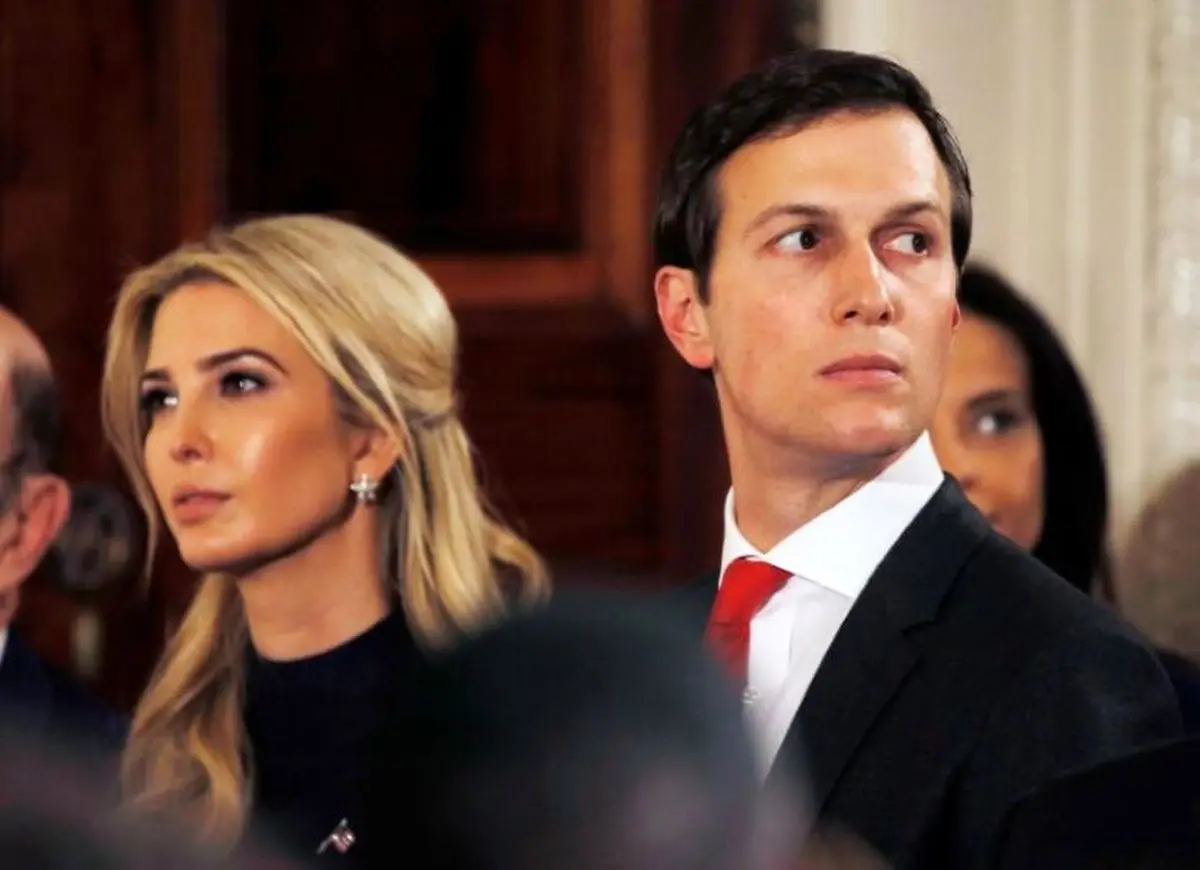Kushner unveils economic portion of Middle East peace plan; Reuters

The White House on Saturday outlined a $50 billion Middle East economic plan that would create a global investment fund to lift the Palestinian and neighboring Arab state economies, and fund a $5 billion transportation corridor to connect the West Bank and Gaza.
The “peace to prosperity” plan, set to be presented by White House senior adviser Jared Kushner at an international conference in Bahrain next week, includes 179 infrastructure and business projects, according to details of the plan and interviews with U.S. officials. The approach toward reviving the moribund Israeli-Palestinian peace process was criticized by the Palestinians on Saturday.
The ambitious economic revival plan, the product of two years of work by Kushner and other aides, would take place only if a political solution to the region’s long-running problems is reached.
More than half of the $50 billion would be spent in the economically troubled Palestinian territories over 10 years while the rest would be split between Egypt, Lebanon and Jordan. Some of the projects would be in Egypt’s Sinai peninsula, where investments could benefit Palestinians living in adjacent Gaza, a crowded and impoverished coastal enclave.
The plan also proposes nearly a billion dollars to build up the Palestinians’ tourism sector, a seemingly impractical notion for now given the frequent flareups between Israeli forces and militants from Hamas-ruled Gaza, and the tenuous security in the occupied West Bank. (For factbox with more on the plan see )
The Trump administration hopes that wealthy Persian Gulf states and nations in Europe and Asia, along with private investors, would foot much of the bill, Kushner told Reuters.
“The whole notion here is that we want people to agree on the plan and then we’ll have a discussion with people to see who is interested in potentially doing what,” Kushner told Reuters Television.
The unveiling of the economic blueprint follows two years of deliberations and delays in rolling out a broader peace plan between Israelis and Palestinians. The Palestinians, who are boycotting the event, have refused to talk to the Trump administration since it recognized Jerusalem as the Israeli capital in late 2017.
Veteran Palestinian negotiator Hanan Ashrawi dismissed the proposals on Saturday, saying: “These are all intentions, these are all abstract promises” and said only a political solution would solve the conflict.
Kushner made clear in two interviews with Reuters that he sees his detailed formula as a game-changer, despite the view of many Middle East experts that he has little chance of success where decades of U.S.-backed peace efforts have failed.
“I laugh when they attack this as the ‘Deal of the Century’,” Kushner said of Palestinian leaders who have dismissed his plan as an attempt to buy off their aspirations for statehood. “This is going to be the ‘Opportunity of the Century’ if they have the courage to pursue it.”
Kushner said some Palestinian business executives have confirmed their participation in the conference, but he declined to identify them. The overwhelming majority of the Palestinian business community will not attend, businessmen in the West Bank city of Ramallah told Reuters.
Several Persian Gulf states, including Saudi Arabia, will also participate in the June 25-26 U.S.-led gathering in Bahrain’s capital, Manama, for Kushner’s rollout of the first phase of the Trump peace plan. Their presence, some U.S. officials say privately, appears intended in part to curry favor with Trump as he takes a hard line against Iran, those countries’ regional arch-foe.
The White House said it decided against inviting the Israeli government because the Palestinian Authority wold not be there, making do instead with a small Israeli business delegation.
The 38-year-old Kushner - who like his father-in-law came to government steeped in the world of New York real estate deal-making - seems to be treating peacemaking in some ways like a business transaction, analysts and former U.S. officials say.
Palestinian officials reject the overall U.S.-led peace effort as heavily tilted in favor of Israel and likely to deny them a fully sovereign state of their own.
Kushner’s attempt to decide economic priorities first while initially sidestepping politics ignores the realities of the conflict, say many experts.
“This is completely out of sequence because the Israeli-Palestinian issue is primarily driven by historical wounds and overlapping claims to land and sacred space,” said Aaron David Miller, a former Middle East negotiator for Republican and Democratic administrations.
Kushner acknowledges that “you can’t push the economic plan forward without resolving the political issues as well.” The administration, he said, will “address that at a later time,” referring to the second stage of the peace plan’s rollout now expected no earlier than November.
Kushner says his approach is aimed at laying out economic incentives to show the Palestinians the potential for a prosperous future if they return to the table to negotiate a peace deal.
Kushner stressed that governments would not be expected to make financial pledges on the spot.
“It is a small victory that they are all showing up to listen and partake. In the old days, the Palestinian leaders would have spoken and nobody would have disobeyed,” he said.
END
